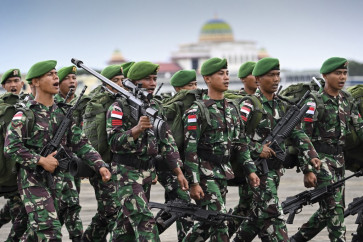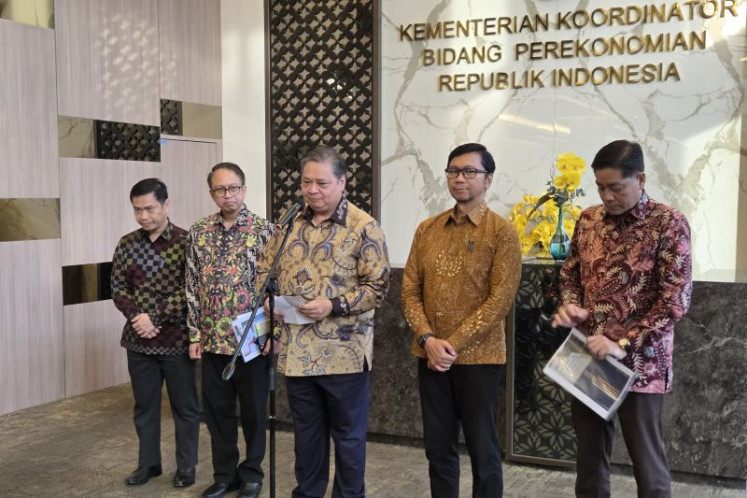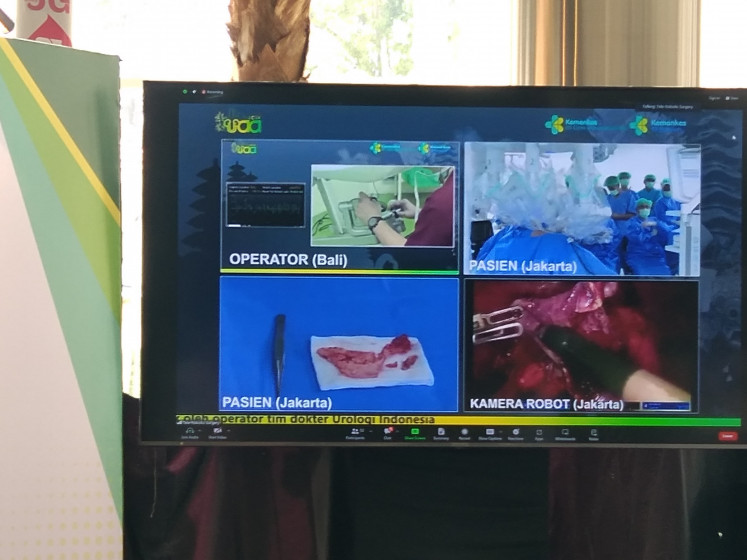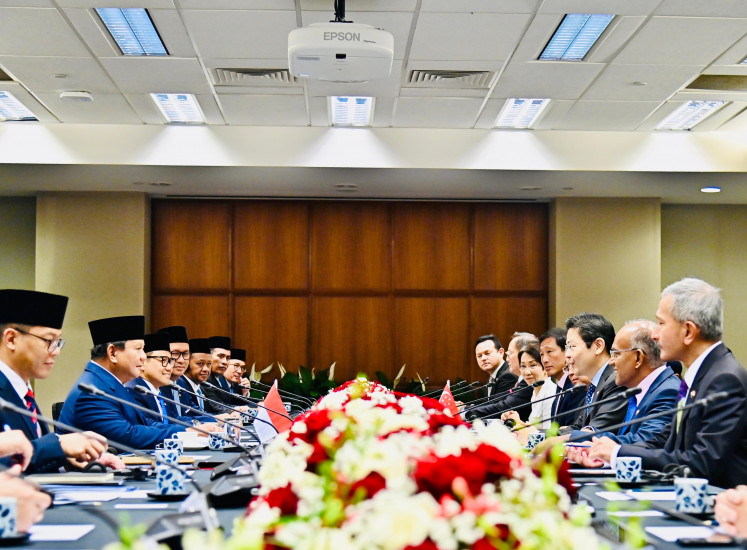Popular Reads
Top Results
Can't find what you're looking for?
View all search resultsPopular Reads
Top Results
Can't find what you're looking for?
View all search resultsOpening up to mental health: Digital communities help deal with 'pandemic blues'
Change text size
Gift Premium Articles
to Anyone
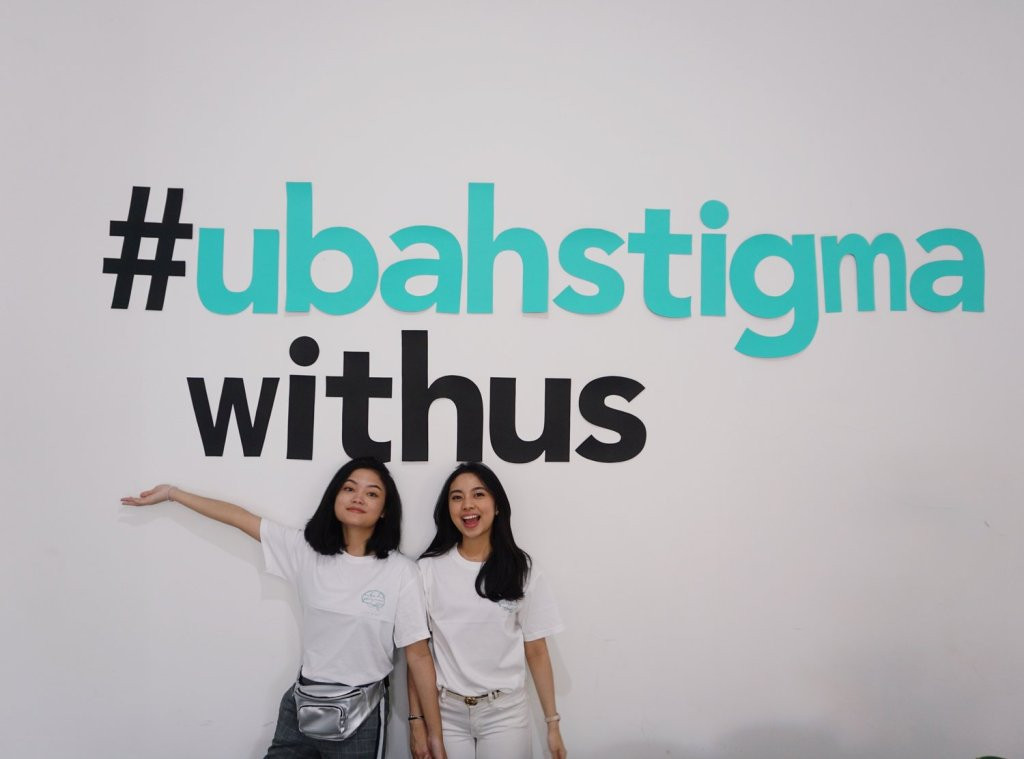
M
ental health communities and their volunteers are reaching out across the archipelago to help people deal with their psychological and emotional impacts from the pandemic.
For those with mental health problems, the stresses of the pandemic have done nothing but excalibrated those issues. While those who did not, might start experiencing it.
Rini Hapsari Santosa, a psychologist from the University of Indonesia Psychological Assessment and Intervention Institute (LAIPSI), said that almost everyone had experienced anxiety during the pandemic, not only because of the constant fear of infection but also lingering financial woes.
"For people who are dealing directly with the pandemic, such as patients and health workers, it is a matter of life and death. They experience burnout – physical and mental exhaustion," she said.
According to psychologist Arina Megumi Budiani, the sources of anxiety can vary according to age group. People in the learning age group (5-20s), for example, might feel apprehensive or even depressed because they have trouble with online learning, compounded by the fact that they cannot socialize as usual.
On the other hand, people in the working age group (20s-50s) can experience anxiety from financial problems that could be caused by layoffs and reduced income. Their mental health can also be affected by work from home (WFH) issues as well as the limited stress relief options available to them as a result of social restrictions.
Arina explains that people with families might also experience problems at home, such as family conflicts that occur because of an increase in household chores that creates additional stress for everyone. Meanwhile, elderly people might be more emotionally sensitive because their children and relatives aren’t able to visit them as often. Worse, they might be unable to visit at all.
"Most of the issues I encountered were a lot of stress and anxiety emerging in relation to adapting to the situations caused by the pandemic. Sometimes, I also encountered cases of depression," she said.
Accessible and empathetic
Several volunteer communities are offering empathy and compassion for people who need emotional and mental support.
One such community is Ease (www.easementalhealth.com). When the pandemic began, founder Tazkia Febyani Jiniputri used her free time to create content about the topics that resonated with her the most: women and mental health.
She began by sharing her own and others' personal experiences with mental health issues, as well as tips on how to deal with them. Tazkia also built a website, which touts itself as “women’s mental health space”, to offer a social support network for women to share their stories freely and safely.
"Our community's biggest vision and long-term ambition is to make all Indonesian women much happier, fully empowered and more mental health-conscious through engaging with our community," said Tazkia.
In order to spread the message to a broader audience, Ease initiated a volunteer program that hosts a series of virtual events on mental health education. The program’s activities span Instagram Live series, webinars and discussions with psychologists and survivors, as well as relevant public figures.
It also runs a support group that provides direct assistance, such as an intensive two-week program offering peer guidance from professional counselors and a clinical psychologist. The group also runs the #wesharewecare social media campaign, through which up to 100 people share their personal struggles and tips on the best coping strategies.
In the same spirit with a wider target, Ubah Stigma, or “change stigma”, aims to eliminate the local stigma surrounding mental health. It does this by promoting the perception that mental health is just as important as physical health, so talking bout it is not a taboo.
Founded by Asaelia Aleeza and Emily Jasmine in 2018, the community launched a "Let's Learn" program during the early days of the pandemic to spread awareness about different mental health topics, introducing practical steps for improving day-to-day mental health guided by professionals. The program also offers a safe and open space for participants to share, ask questions and learn about mental health and related issues.
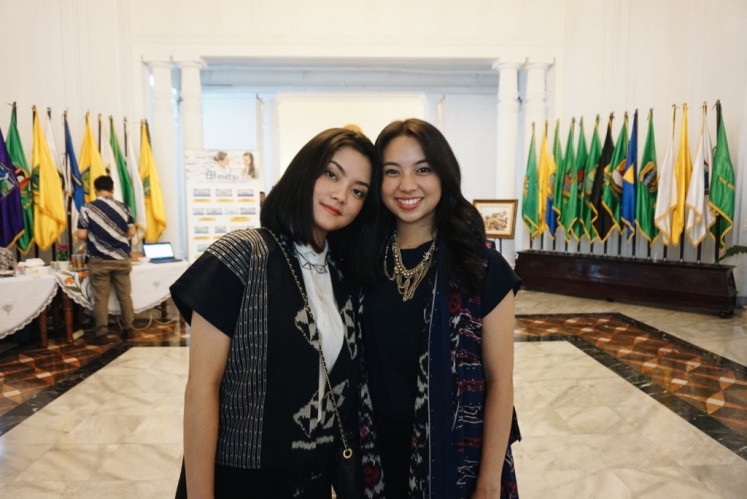
"These programs reflect our best efforts to provide mental health education, a safe space to have more conversations and raise awareness on mental health in Indonesia. We hope that the information, tips and insights we share can contribute even the slightest bit to people's wellness," said Sasya Natasanthi, Ubah Stigma's communications director.
Social Connect took it a step further by launching a web-based application called Djiwa (archaic spelling for jiwa, meaning “soul”) to help people with sleeping issues get better sleep and find happiness during these trying times.
First founded in 2019, it realized that few mental health forums and communities that provided free access were truly inclusive, while the country had no mental health hospitals due to a scarcity of trained psychologists and psychiatrists.
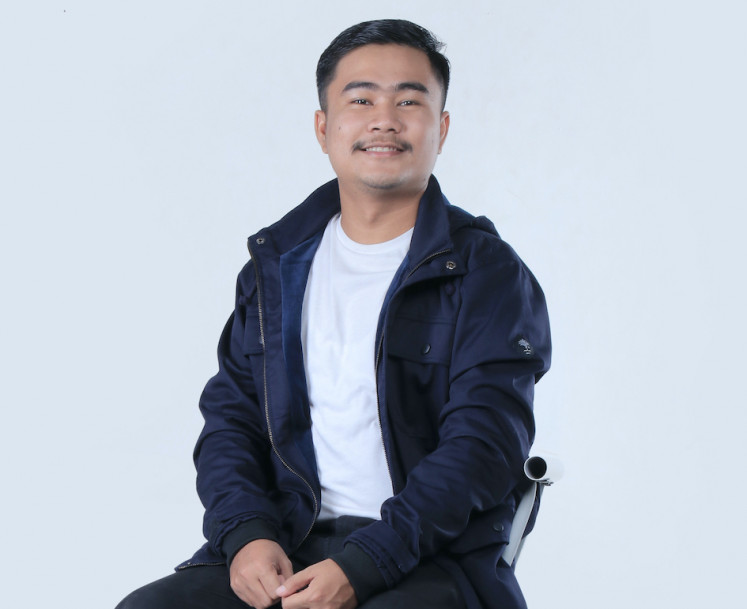
On April 20, 2021, around three weeks after the government declared COVID-19 a public health emergency, Social Connect made Djiwa free for the public to encourage people to become more aware of their mental health.
Gunawan Setiadi, a 20-year-old psychology student, has had hands-on experience as a volunteer campaigner with Lingkar Psikologi, meaning “psychology circle”, also known as Lipsi.
He was among the thousands of volunteers across the archipelago tasked with uploading daily content on mental health education in the early weeks of the pandemic.
Recalling when he was invited to join the community and digital platform, “my first thought was, 'Why are you doing this? I know mental health is important, but what effect does it have on the people who see the post?'" he said.
A Lipsi coordinator later addressed this question by saying: "What we are doing today might seem trivial. We are merely disseminating this educational information to the general public.
"But imagine if everyone posted the same thing and the post was read by ordinary people. Wouldn't that mean giving new knowledge as well as building awareness among a wider community?"
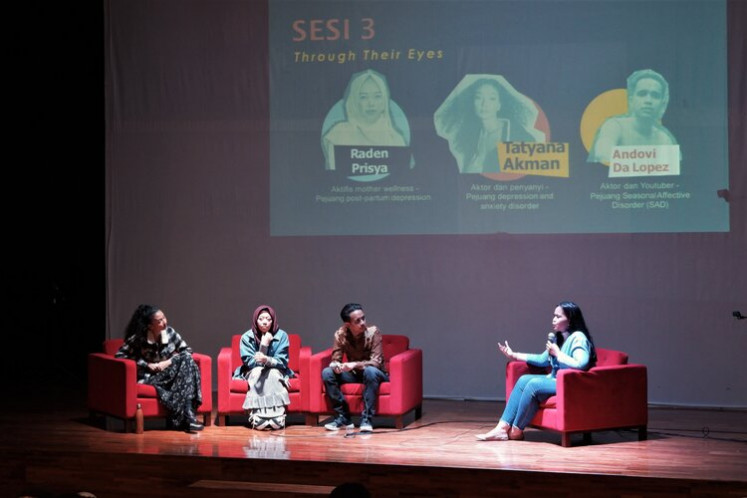
Recipe for stability
"This pandemic is a disaster with an end that is unknown to us. So while it is going on, we need the ability to bounce back or have resilience when dealing with things we are unused to," said psychologist Arum Septi Mawarni, who offers her clinical guidance through online platforms like Ibunda.id, psychological services firm Kasandra & Associates and telemedicine services Halodoc, as well as offline at Tambak Women’s and Children's Hospital (RSIA) in Menteng, Central Jakarta.
Her colleague Rini has shared a few simple tips on maintaining mental health:
- Enjoy the moment. Make a list of fun and useful things to do, and then actually do them.
- Stay connected with loved ones, online or offline.
- Be optimistic. Avoid activities that can generate negative emotions such as "doomsurfing", deliberately browsing bad news on social media or in the news.
- Seek help from others when necessary.
"The process of strengthening, maintenance and recovery [for mental health] will undoubtedly be more effective in a community, and people do need virtual alternatives at present," said Rini.
"After all,” she said, “human beings constantly long for relationships and connections with other human beings. It is natural and necessary in the mental health context.”
ohmg

